Prime Minister Scott Morrison makes historic visit to the White House for global Quad summit
Scott Morrison has used an address at the White House to make a pledge about the future of overseas travel, after talks with US President Joe Biden.
World
Don't miss out on the headlines from World. Followed categories will be added to My News.
Prime Minister Scott Morrison has promised to help Australians stranded overseas return home once the country hits an 80 per cent double-dosed vaccination target.
Speaking in Washington DC following talks with leaders from United States, India and Japan at the Quad meeting, Mr Morrison said Aussies would be able to travel once 80 per cent of the eligible population had received both Covid-19 jabs.
But he could not guarantee all Australians who applied to return with the Department of Foreign Affairs and Trade would be able to come home by Christmas.
“We have been running more commercial flights and if we need to, we will (run more), but once we hit 80 per cent vaccinations, then that means Australians will be able to travel in those states that are opening up,” Mr Morrison said in Washington.
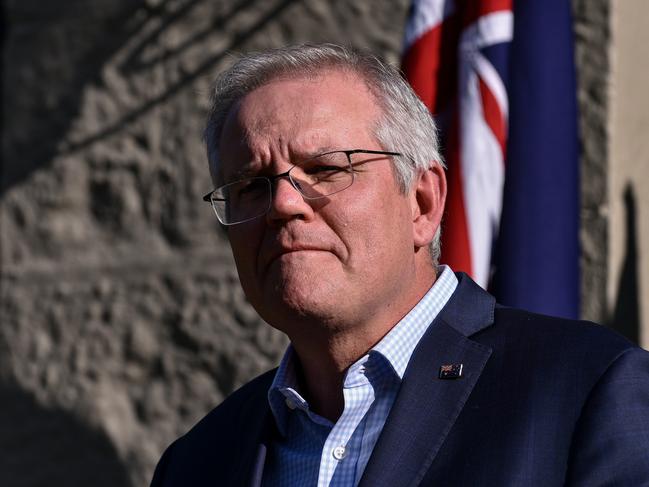
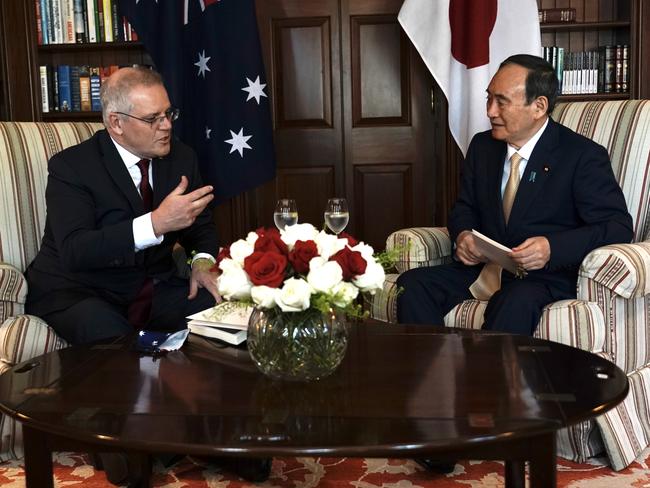
“They will be able to get on planes and go overseas and come home, and that means Australians who are overseas and who are vaccinated with the vaccines that are recognised in Australia will be able to get on planes and come to Australia.”
Mr Morrison said arrival caps for vaccinated Aussies would be lifted.
“That means there will be the commercial demand for those flights to be put on,” he said.
“I don’t think Qantas will have to be encouraged to start running those flights and putting people on seats, and I’m looking forward to them getting on with that job, because that’s the business they are in.”
Mr Morrison also said climate change and clean energy was discussed in the Quad meeting.
“When it comes to climate there was a real sense of resolve, and not just about the ‘if’ question but how we can support particularly developing countries within the Indo-Pacific to get access to the clean energy technology that enables them to transition their economies, just like Australia is seeking to transition our economy,” he said.
Mr Morrison said a clean energy supply chain summit would be held next year in Australia.
“A road map would be developed over the next 12 months that can see how we can combine the best scientific knowledge, industry knowledge and academics coming together to ensure we can transfer our energy technology to clean energy technology,” Mr Morrison said.
MORRISON IN WASHINGTON
Mr Morrison met with other Quad leaders at the White House for their first in-person bilateral meeting, to focus on deepening ties amid China’s rise in the Indo Pacific.
He joined US President Joe Biden along with the leaders of India and Japan to discuss a Covid vaccines drive, economic cooperation, regional infrastructure, climate change, cyber security, and securing supply chains for the semiconductors used in computer technology, on Friday afternoon local time.
At the start of the meeting, Biden announced a fellowship programme to allow students from the four countries to pursue degrees in science, technology, engineering and mathematics (STEM) at US universities.
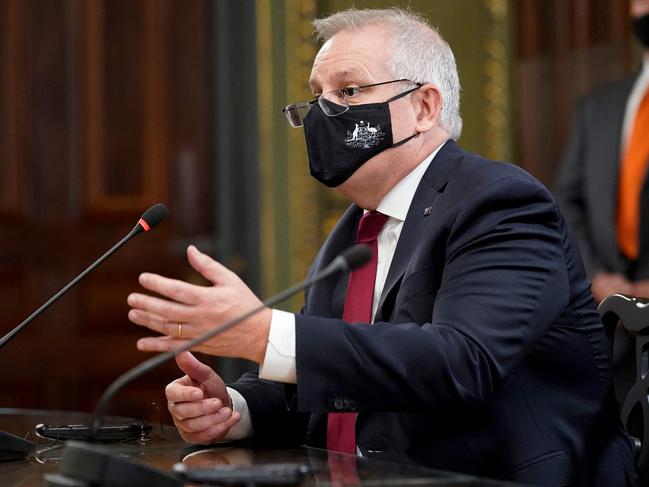
Speaking in the East Room, the US president said the countries were “coming together to take on key challenges of our age, from COVID to climate to emerging technologies”.
“We know how to get things done, and we are up to the challenge,” Biden said in his opening remarks.
Morrison thanked Biden for hosting the group, which he described as “great friends”, and echoed his sentiments.
“We are liberal democracies that believe in a world order that favours freedom and we believe in a free and open Indo Pacific,” Morrison added.
“The Quad is about demonstrating how democracies such as ours... can get things done.
“That can deal with the challenges we face in a very complex and changing world.
“And there is no part of the world that is more dynamic than the Indo Pacific at this time.”
Morrison said the region was experiencing “many challenges” that need to be “overcome”.
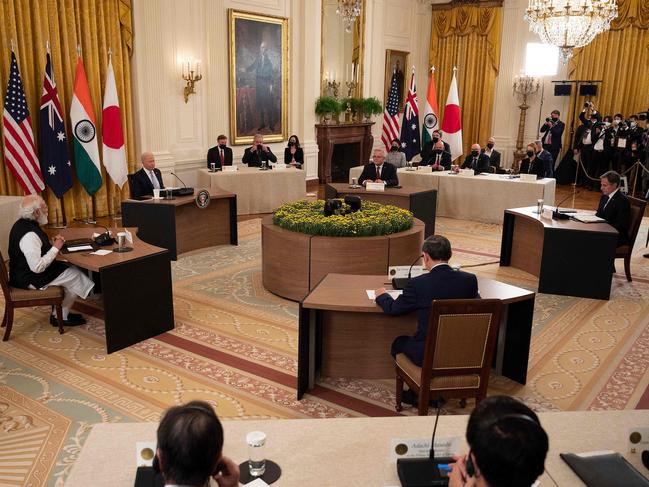
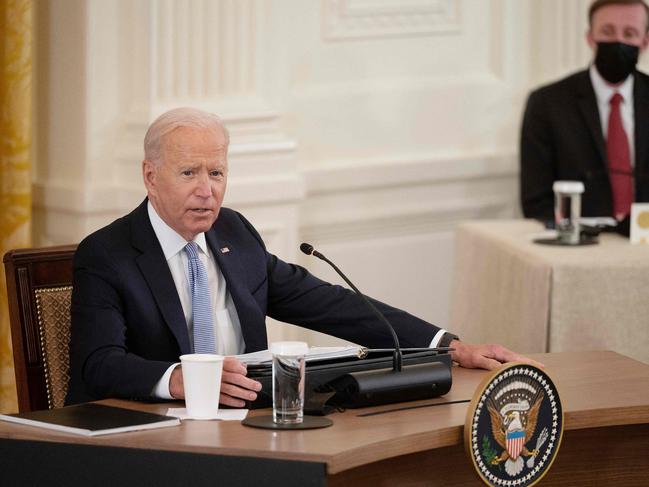
While China was not officially on the agenda, the Quad will stress backing for a “free and open Indo-Pacific,” a senior US official told reporters earlier. That’s a phrase often standing in for ensuring that communist China will not end up dominating the region, including vital international sea lanes.
The Quad, formally known as the Quadrilateral Security Dialogue, is seen as a counterweight to China in the Indo-Pacific region. Its leaders met virtually for the first time in March.
For Washington, the Quad meeting marks another step to reviving a US focus on diplomatic efforts, following its dramatic exit from the 20-year Afghanistan war.
And “the Biden administration understands that the challenges of the 21st century will largely play out in the Indo-Pacific,” a senior administration official, who asked not to be named, said. “We are doubling down on our efforts.”
“We’re going to be talking about Afghanistan,” Biden said in a press conference ahead of the historic meeting.
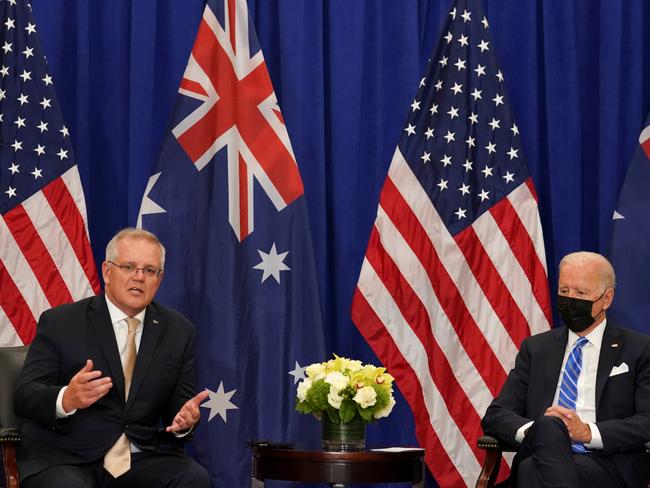
Of three regional groupings that Washington leads in its strategic chess game to manage China’s ascent, the Quad is deliberately the most open.
The other two are the Five Eyes intelligence-sharing alliance, comprising Australia, Canada, New Zealand, the United Kingdom and the United States, and the newest arrival on the block
– AUKUS.
Security threats on the Korean Peninsula were on the menu when Morrison met his Japanese counterpart Yoshihide Suga for breakfast Friday in Washington, DC.
Their meeting at the ambassador’s residence took place a few hours before the historic first in-person Quad summit of leaders from the US, India, Japan and Australia at the White House.
The pair also discussed security and defence cooperation; strengthening ties with Southeast Asian nations and ASEAN; the new AUKUS trilateral partnership; cooperation on secure and resilient supply chains and on the new energy economy; and the Trans-Pacific Partnership (CPTPP) trade agreement.
Suga was the last of the leaders Morrison has met face to face this week ahead of the Quad summit.
The summit agenda is focused on an what Morris calls an “open and resilient Indo-Pacific region”, and countering China’s growing belligerence.
AUKUS was unveiled last week and centres so far on a project for Australia to acquire nuclear-powered submarines using US and British technology. Although it will take years for Australia’s navy to actually get the vessels, the announcement sent waves around the world, angering China and separately causing a furious row with France which saw its previously negotiated contract for selling Australia conventional submarines thrown out.
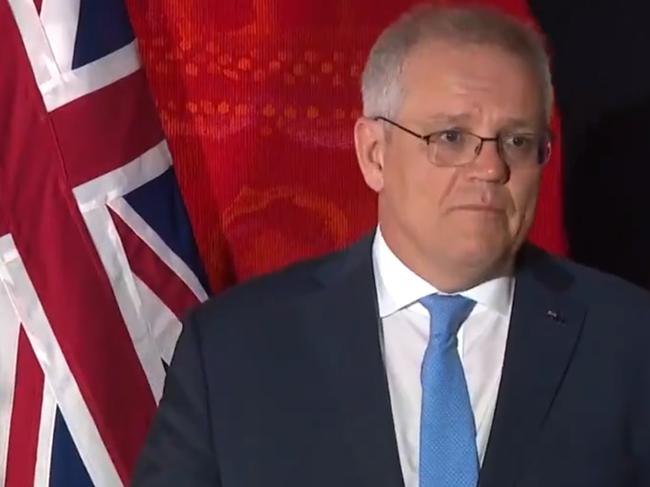
The White House meeting is expected to be one of the final international summits for Japanese Prime Minister Yoshihide Suga, who is not seeking re-election. India’s Prime Minister Narendra Modi and Prime Minister Scott Morrison of Australia will also attend.
Suga and Modi will hold separate bilateral talks with Biden on Friday, while Morrison and Biden met earlier this week at the United Nations.
With the uproar over the Australian nuclear submarines plan only just dying down, US officials are keen to stress there is no military component to the Quad.
They also say it is not meant to rival or undermine the pre-eminent regional grouping ASEAN, which includes China.
“This is not a military alliance. It’s an informal grouping of democratic states,” the administration official said. “I think concerns have been dispelled and I believe at a general level this initiative is welcome across the region.” However, competition with China is at least as strong outside the military domain, including in the effort to supply poorer countries with vaccines — where the United States is by far the world’s top donor — and in stimulating pandemic-battered economies.
Among the “substantial engagements” expected at the talks, the Quad will make announcements on its vaccine delivery plans, the administration official said.
Just ahead of the Quad summit, China made a major play of its own by applying to join the Comprehensive and Progressive Agreement for Trans-Pacific Partnership — a huge regional free trade pact.
The United States had joined the pact’s previous version, the TPP, until Donald Trump pulled out in 2017.
With Japan already a member of the new pact, Biden will ask Suga to brief him on “where he thinks Japan is going and his recommendations for the United States’ continuing engagement,” the official said.
“After the meeting with President Biden, the Quad members will meet with Vice President Harris for a detailed discussion on basically the capacities associated with resilience in each of our countries and compare notes on what we think is important as democracies go forward,” a senior administration official said.
“I expect that the dialogue among the four leaders will take a good part of the afternoon tomorrow. There will be time for a bilateral meeting between Prime Minister Suga and the President."
According to the official, there will be another session with Dr Jill Biden, the First Lady.
“Those sessions, frankly, are designed to be free-flowing. I think the President has indicated that he doesn’t want to necessarily put an artificial stop to them. I think he wants to let them have sort of a natural progression,” the official added.
“These will be substantial engagements, and we’ve worked closely with our Quad friends on all the issues associated with the various details more generally.”
- With AFP

